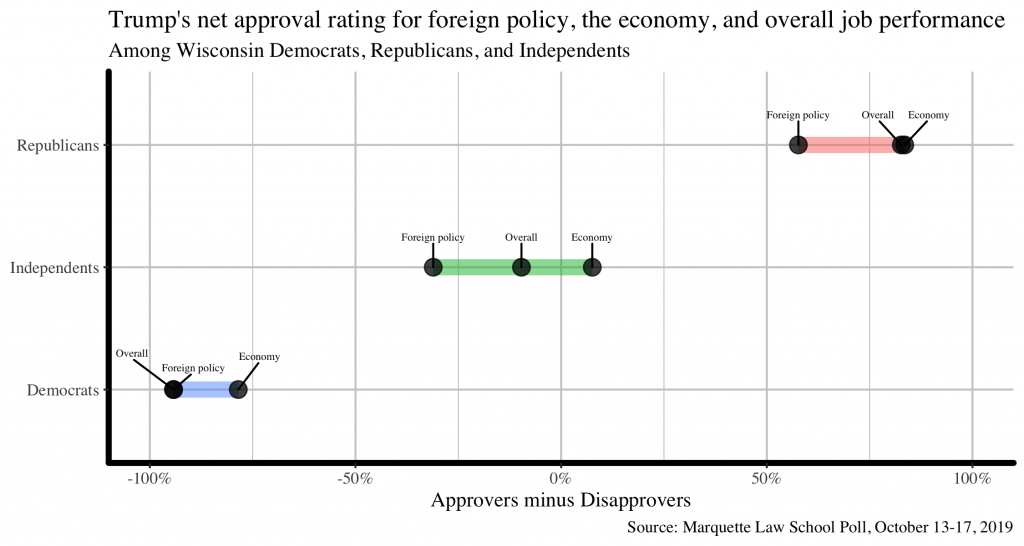
On October 21, the Marquette Law School Poll will release the results of a nationwide survey of public opinion about the Supreme Court of the United States. How much do citizens know about the Court? How informed are they about the Constitution? What, if anything, do they think of the justices? With respect to recent decisions of the Court, how much of the public supports or opposes the Court’s rulings? How much is opinion of the Court and its decisions based in partisan or ideological affiliations of voters? Do opinions of the Court influence presidential-vote choices? Does the public see the Court as legitimate? The Marquette Law School Poll Director, Professor Charles Franklin, will present the results of a unique national survey devoted entirely to knowledge and opinion of the U.S. Supreme Court.
We will then present three panels of reaction or reflection about the survey or the general topics that it implicates. Panelists will include the following:
- from the bench and bar, Judge Diane S. Sykes of the U.S. Court of Appeals for the Seventh Circuit; Peter D. Keisler, co-leader of Supreme Court and Appellate practice, Sidley Austin, Washington D.C.; and Thomas L. Shriner, Jr., partner in Foley & Lardner and adjunct professor of law at Marquette University
- from the academy, Professor Lawrence Baum (political science), The Ohio State University, and author (with Neal Devins) of The Company They Keep: How Partisan Divisions Came to the Supreme Court (Oxford 2019), and Tara Leigh Grove (law), William & Mary, author of The Supreme Court’s Legitimacy Dilemma, 132 Harv. L. Rev. 2240 (2019)
- from the press with deep experience with respect to the Court, Robert Barnes (Washington Post) and Carl Hulse (New York Times and author of Confirmation Bias: Inside Washington’s War over the Supreme Court, From Scalia’s Death to Justice Kavanaugh (Harper & Collins 2019))
Other participants will include my Marquette colleagues, Chad M. Oldfather, professor of law, and Mike Gousha, distinguished fellow in law and public policy. We regard this survey as an opportunity to offer not just opinion from the public but also a variety of explanations to the public about how the judiciary, or the Supreme Court in particular, comes to decisions.
Since its establishment almost eight years ago, the Marquette Law School Poll has developed a substantial national reputation. This latest survey, too, will be a public good, and it should be of considerable lasting interest.
Please join us at Marquette Law School, in Eckstein Hall’s Lubar Center, for the conference (Monday, October 21, 8 a.m.–1:30 p.m.). Registration is required and available here. Questions may be directed to Rita Aleman, program manager of the Law School’s Lubar Center for Public Policy Research and Civic Education.


